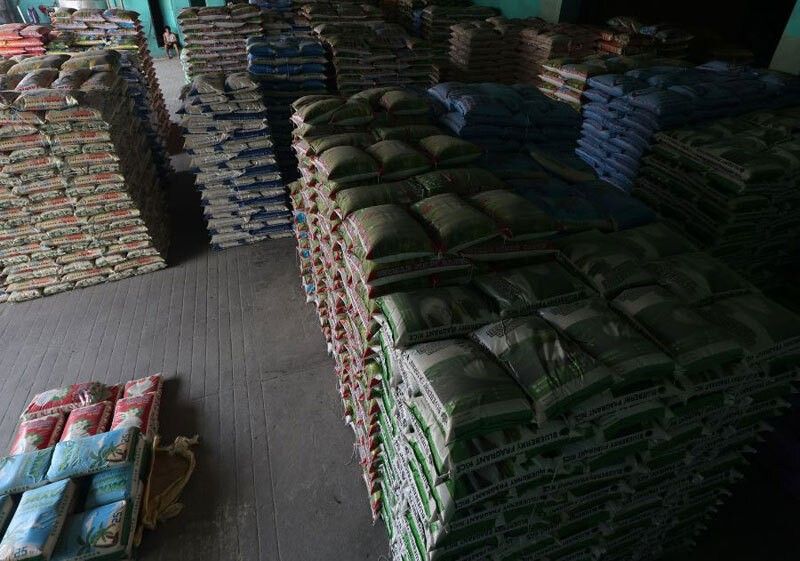Philippines may import rice all the way from Argentina

MANILA, Philippines — Amid the high prices of rice in the country, the Philippines is looking at importing the Filipinos’ staple as far as from South America.
Foreign Affairs Secretary Enrique Manalo and Santiago Andres Cafiero, Argentina’s minister for foreign affairs, international trade and worship, considered the possibility of the importation during their meeting at Palacio San Martin in Buenos Aires on Wednesday.
A press statement released to the media yesterday said the ministers “also looked into the possibility of the Philippines importing rice from Argentina,” but provided no other details.
Thailand and Vietnam are the top two sources of imported rice in the Philippines this year, with the country’s current rice import now at 2.33 million metric tons – 4.46 percent from Thailand and 89.85 percent from Vietnam.
Manalo is currently undertaking a historic visit to Buenos Aires upon the minister’s invitation to commemorate the 75th anniversary of diplomatic relations between the Philippines and Argentina.
The United States Department of Agriculture, in its latest “Grain: World Markets and Trade” report, projected that Philippine rice importation will reach 3.8 million metric tons in the marketing year 2023-2024, overtaking China as the world’s top importer of rice – a projection that rice watchdog Bantay Bigas blamed on President Marcos.
It said that while the while the country’s importation would balloon, that of China will drop to only 3.5 million MT.
“President Marcos should be held accountable as he is the main proponent why the Philippines is now considered as top rice importer while continuing the killing of the local agriculture industry,” said Bantay Bigas spokesperson Cathy Estavillo yesterday.
“Since his assumption in office, importation always comes out from Marcos’ mouth as he even pleaded to other countries for imported rice despite the country’s ability to produce rice,” Estavillo added.
She noted that Marcos failed to develop the local palay production due to a lack of comprehensive program in pushing for national food security and the country’s self-sufficiency.
“Despite the harvest in October, another 500 million MT of imported rice from India will arrive,” Estavillo said as she noted that Marcos also sought a five-year rice supply agreement from Vietnam, which”means that the flooding of imported rice will persist.”
Blame economic managers
Meanwhile, former agriculture secretary Emmanuel Piñol yesterday blamed the economic managers for the country’s dependence on rice imports.
“It is a very hurtful development. The mere fact that the International Rice Research Institute (IRRI) is here, we have our own research body for rice but now we are the biggest rice importer when we have enough land. This is a symbol of the wrong beliefs of our economic managers – that our farmers have no capacity to produce more,” Piñol said.
He claimed that economic managers resorted to importation in the belief that the country does not have enough area to plant palay to ensure sufficiency in rice supply when there are at least 4.9 million hectares planted with palay, which gives an average production per hectare of four metric tons.
“Is it possible that we can increase the production in these areas? Yes, because right now in Nueva Ecija, the normal yield is at 10 tons per hectare. You increase the productivity of the farmers by simply using good seeds, high yielding seeds, enough irrigation, correct fertilization, reasonable farmgate price to motivate the farmers to plant more and of course mechanization,” Piñol stressed.
Piñol also reiterated the need to amend the Rice Tariffication Law (RTL) or Republic Act 11203 to return the powers of the National Food Authority (NFA).
“The NFA has no power to inspect warehouses, it is now being done by the Bureau of Customs. But, you have to understand the inspection will be limited to imported rice (and) does not cover the locally procured rice being hoarded by traders,” he said.
He added that the promise of the RTL proponents that the retail prices of rice would go down by P7 per kilo simply did not materialize.
“Former president (Rodrigo) Duterte was convinced to approve the RTL because that time, (Finance) secretary (Carlos) Dominguez said the prices will go down if the RTL is approved. Of course that did not happen. Right now, the rice industry is controlled by the rice cartel. It (RTL) should be amended. The government cannot give up on the control and supervision of a very important staple food, eaten by Filipinos and allow the rice cartel to manage rice,” Piñol reiterated. — Bella Cariaso
- Latest
- Trending




























